D H A R A
GI ALLY
GI ALLY
Couldn't load pickup availability
GI ALLY is a microbiome supplement uniquely formulated to promote microbiome balance in both the small and large intestine.*
Allicin (Allisure AC-23®) • Pomegranate husk (skin/hull) • Neem leaf
Potential benefits may include supporting:
-
Overall gut health and digestive balance*
-
Decreased bloating, gas, and abdominal discomfort*
-
Healthy, regular bowel habits*
-
Increased nutrient absorption*
-
General cardiovascular, immune, and skin wellness*
GI ALLY contains three herbs traditionally used to support those struggling with Small Intestinal Bacterial Overgrowth and Intestinal Methanogen Overgrowth.* As part of our line of targeted microbiome supplements, this formula was created with transparent dosing, selected intentionally by a Naturopathic Doctor and Integrative Pharmacist, and delivered in a vegan capsule without fillers.
*These statements have not been evaluated by the Food and Drug Administration. This product is not intended to diagnose, treat, cure or prevent any disease. Information and statements are not intended to replace the advice of your treating doctor, and are not intended to be a substitute for conventional medical service.
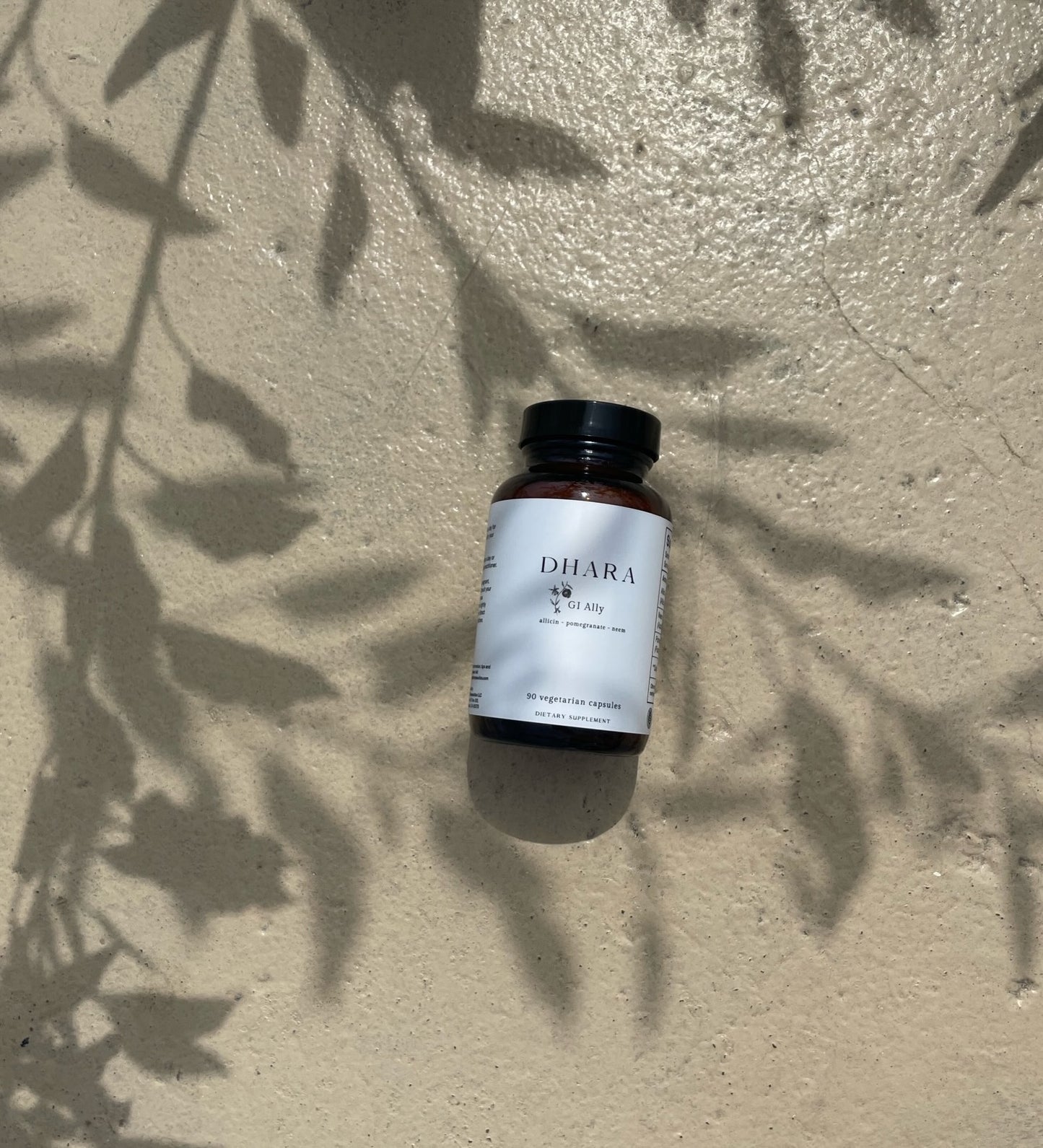
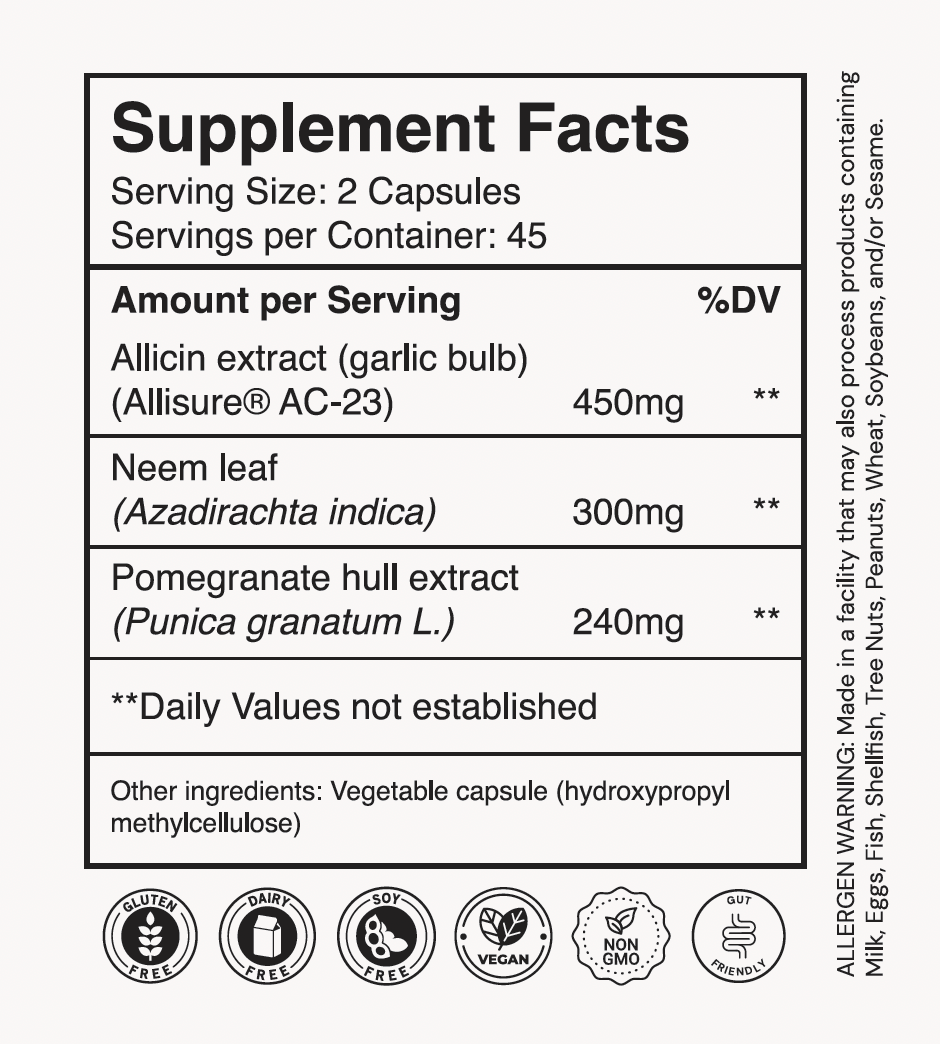
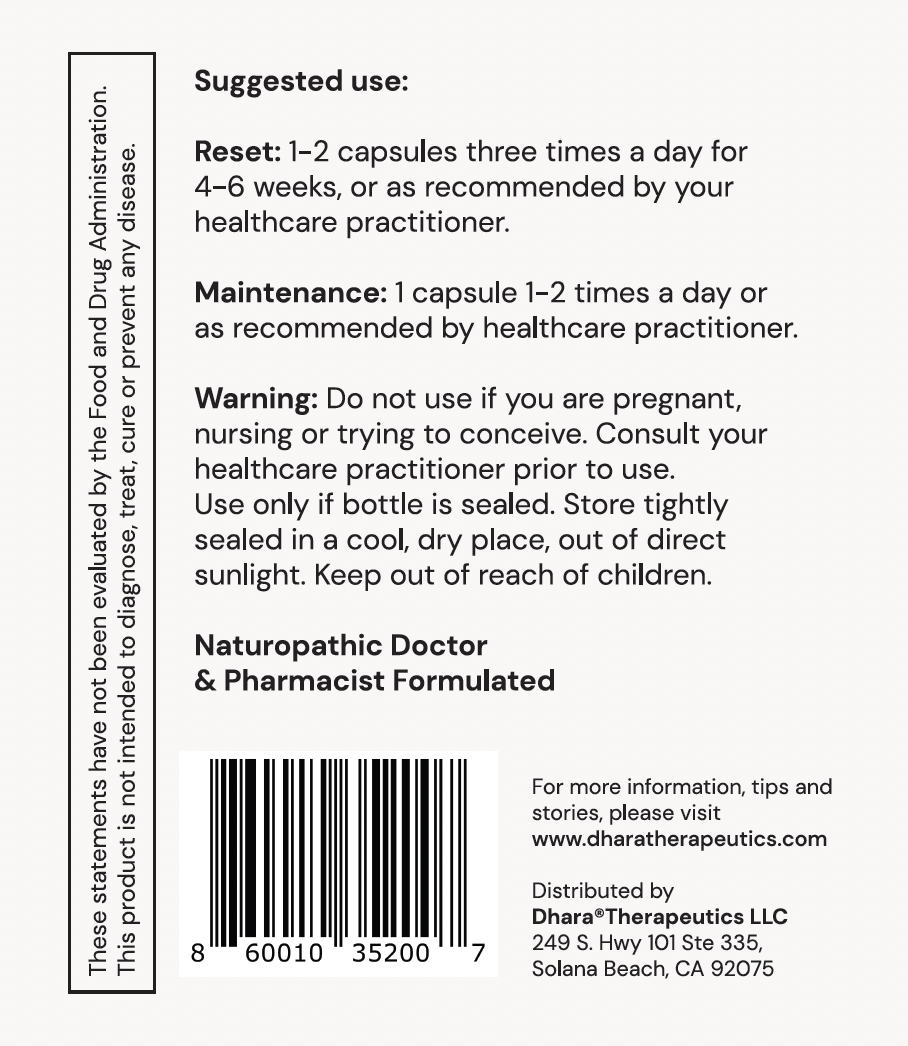
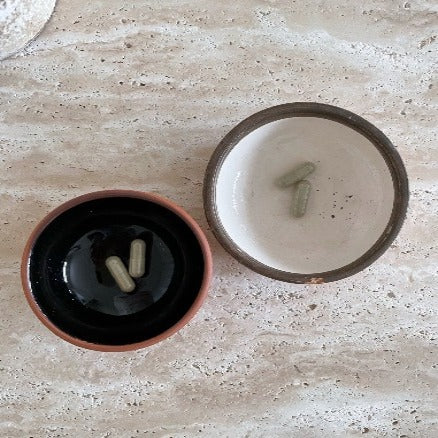
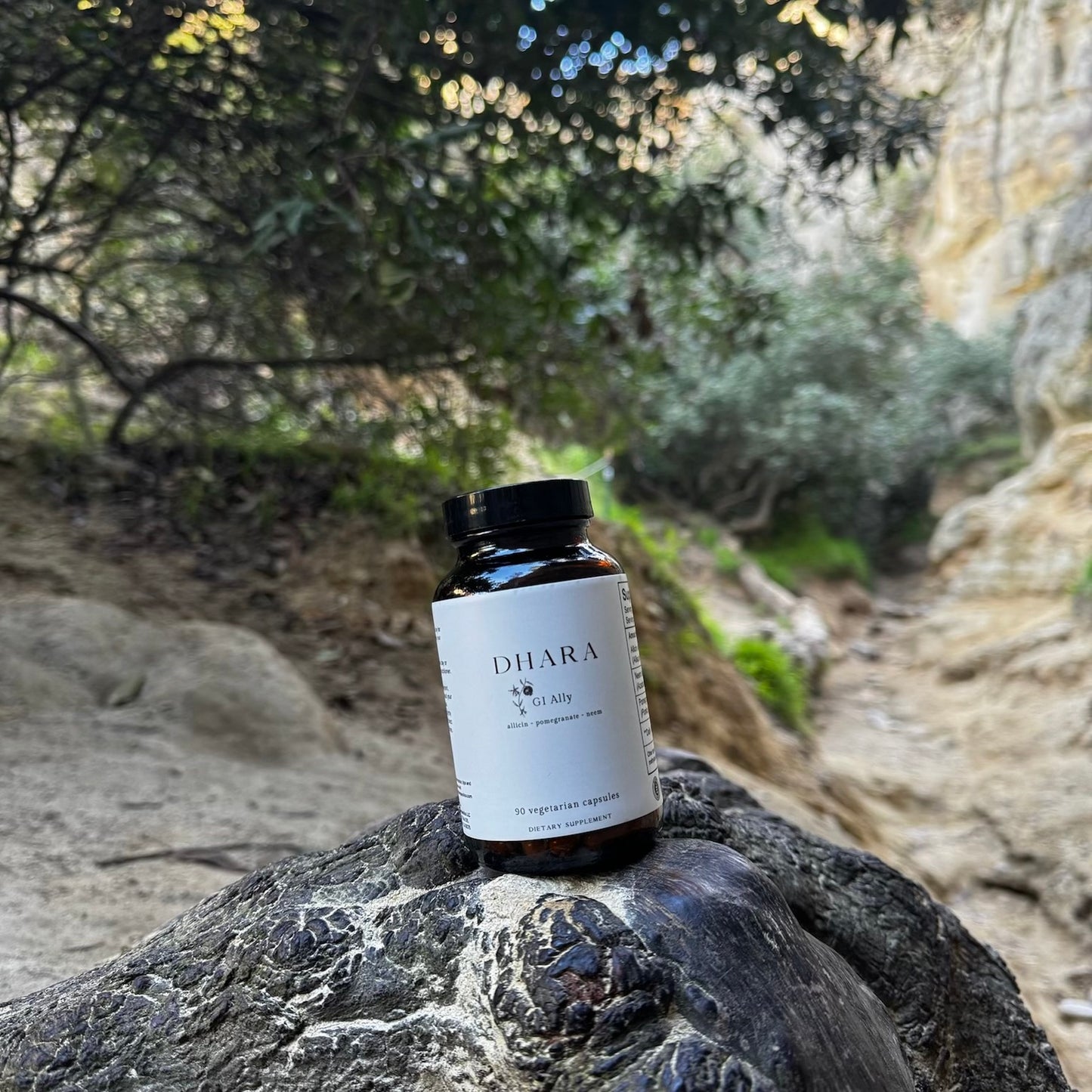
Collapsible content
Supplement Facts
Serving size: 2 capsules Servings per container: 45
Amount per serving:
Allicin extract (garlic bulb) (Allisure® AC-23) 450mg **
Neem leaf (Azadirachta indica) 300mg **
Pomegranate hull extract (Punica granatum L.) 240mg **
**Daily values not established
Other ingredients: vegetable capsule (hydroxypropyl methylcellulose)
Formulated without gluten, dairy, soy, yeast, GMOs, or fillers. Vegan and gut friendly. Made in the USA in a cGMP compliant, FDA registered facility.
Suggested Use
Reset: 1-2 capsules three times a day for 4-6 weeks, or as recommended by your healthcare practitioner.
Maintenance: 1 capsule 1-2 times a day or as recommended by healthcare practitioner.
Warnings
Warning: Do not use if you are pregnant, nursing or actively trying to conceive. Consult your healthcare practitioner prior to use. Use only if bottle is sealed. Keep out of reach of children. Store tightly sealed in a cool, dry place out of direct sunlight.
Allergen Warning: Made in a facility that may also process products containing Milk, Eggs, Fish, Shellfish, Tree Nuts, Peanuts, Wheat, Soybeans, and/or Sesame.
A Microbiome Supplement Designed to Support SIBO and IMO
GI Ally combines data-driven, traditionally used, real-plant ingredients to create one of the most intentional microbiome supplements to support SIBO, IMO and dysbiosis. Formulated to support digestion, microbial balance, and whole-body wellness, it’s a gut health microbiome support supplement you can trust as part of your path to digestive freedom. With ingredients from the Earth, our supplements are also packaged with sustainability in mind, taking care of our Earth.
Key Ingredients in This Gut Health and Microbiome Supplement
Our gut microbiome supplement blends three plant-based ingredients known to support digestion, microbial balance, and immune health from the inside out.
*These statements have not been evaluated by the Food and Drug Administration. This product is not intended to diagnose, treat, cure or prevent any disease. Information and statements are not intended to replace the advice of your treating doctor, and are not intended to be a substitute for conventional medical service.
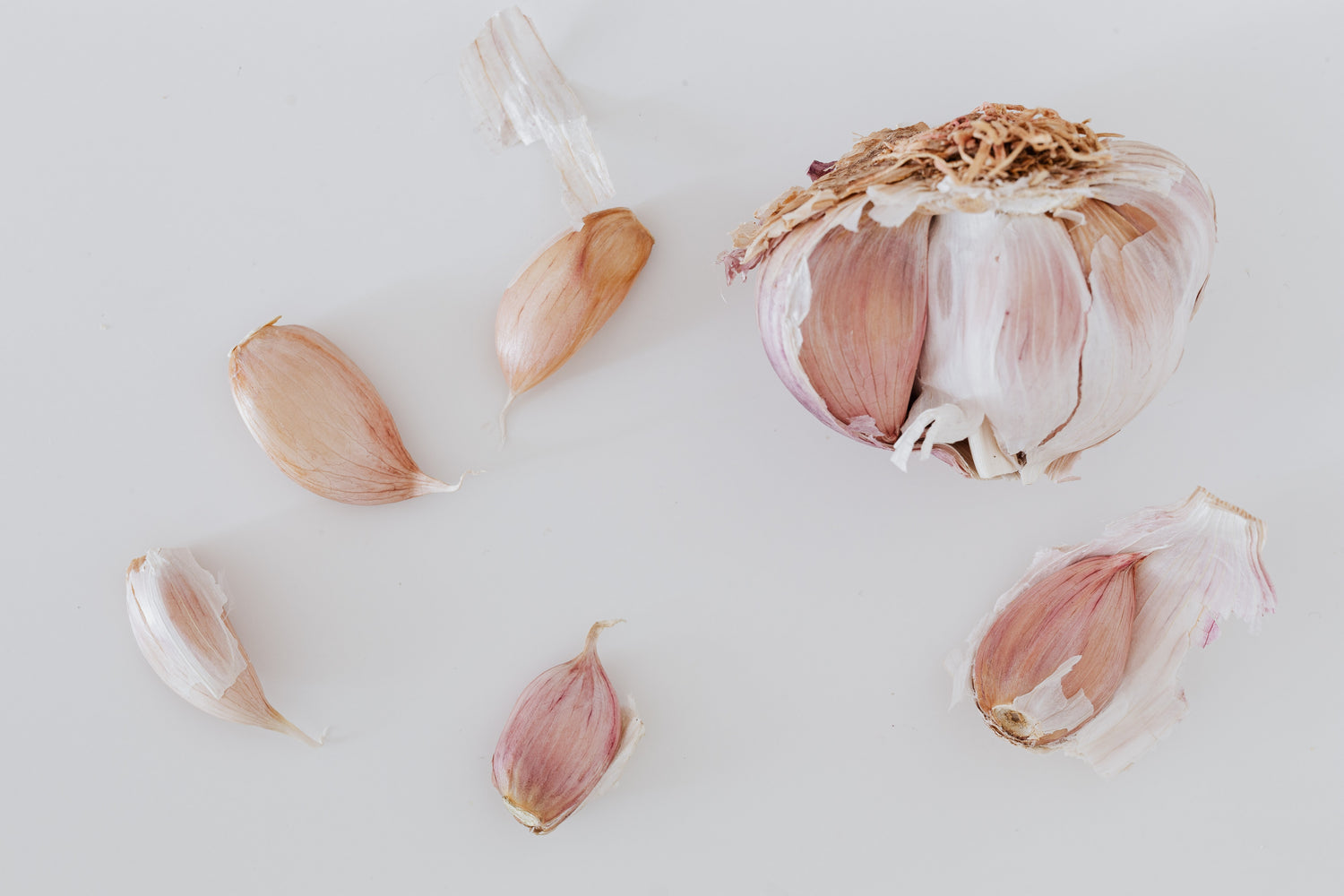
Allicin — A Powerful Ingredient for Microbiome and Immune Support
- 100% Allisure® AC-23, a patented, stabilized extract from Spanish garlic that includes the benefits of garlic, without the bloat.
- A loved and trusted ingredient by SIBO/IMO practitioners worldwide, used traditionally to help support those with intestinal methanogen overgrowth, and for its antifungal, antibacterial, antiviral, and anti-biofilm properties.*
- Antibacterial properties: Allicin has demonstrated potent activity against pathogens such as Escherichia coli (E. coli), Klebsiella, Staphylococcus, Streptococcus, and Clostridium, including antibiotic-resistant strains.*
- Antifungal properties: Allicin has demonstrated activity against various fungal species, including Candida albicans, as well as inhibiting the formation of mycotoxins, such as aflatoxin from Aspergillus.
- Cardiovascular health: Allicin can promote cardiovascular health through the potential to lower blood pressure, reduce cholesterol levels, and inhibit platelet aggregation*.
- Immune support: Allicin can support healthy immune function by enhancing and regulating the activity of certain immune cells and improving defense against infections*.
As a key ingredient in microbiome products, allicin helps strengthen the body’s defenses while supporting microbial balance and digestive health.
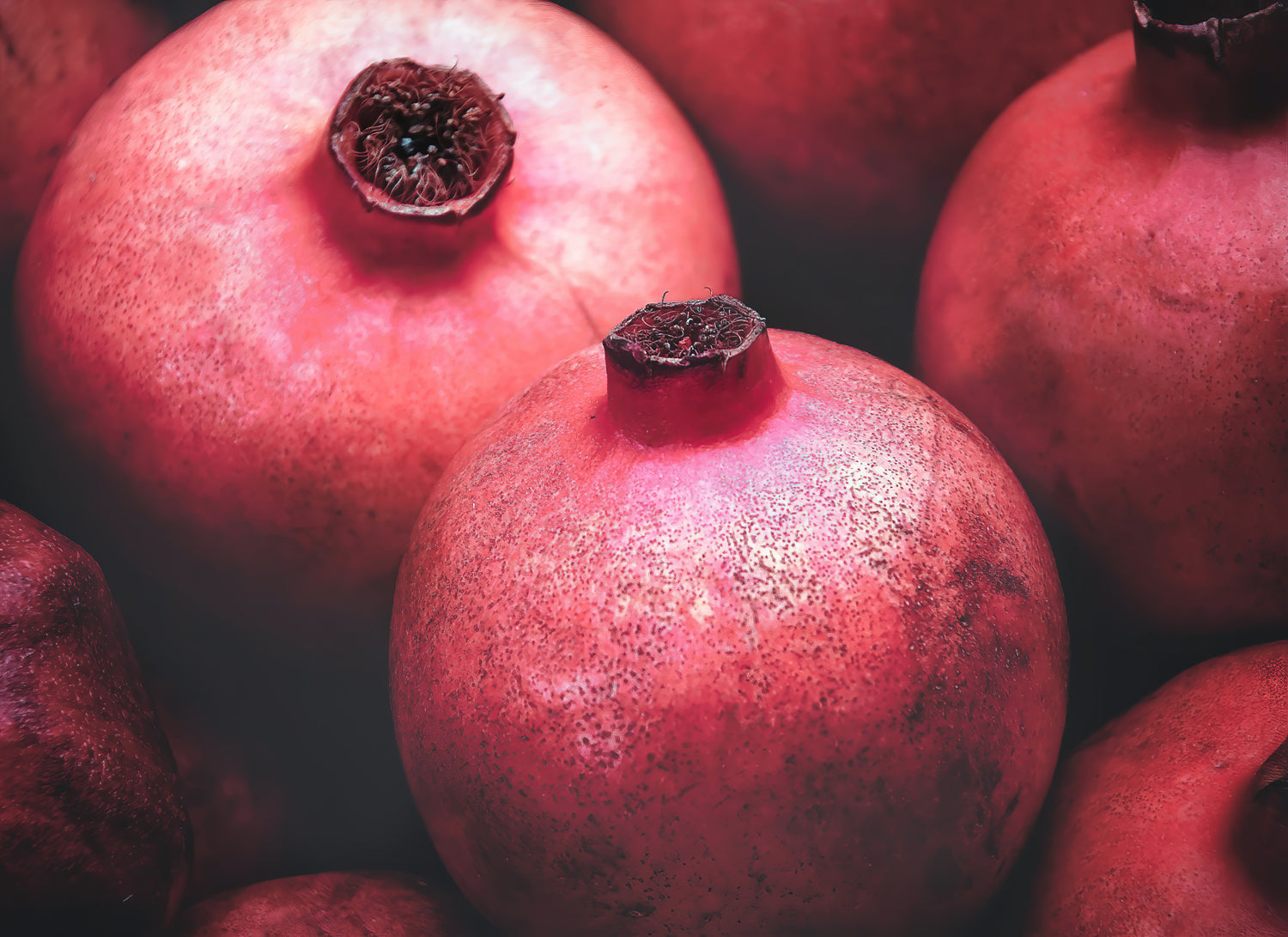
Pomegranate Skin — Antioxidant Support for the Gut Microbiome
- Pomegranate is a beloved staple of the Mediterranean diet, and for good reason! But have you ever been told that the greatest benefit may actually come from the skin?
- Pomegranate skin is traditionally used in Australia and New Zealand to help support those suffering from SIBO.*
- Antioxidant & Anti-inflammatory: Pomegranate skin contains polyphenols (pulicalagin and punicalagin), flavonoids, anthocyanadins, and other compounds that have been shown to have antioxidant and anti-inflammatory properties systemically, and specifically in the cells and tissues of the GI tract.*
- Antimicrobial properties: Pomegranate skin contains potent tannins, including ellagitannins, gallotannins and other compounds that traditionally have been used for their antibacterial, antifungal, and antiparasitic properties against organisms such as E.coli, Klebsiella, Streptococcus, Enterococcus faecalis, and Candida albicans.*
- Dermatological benefits: Studies suggest that pomegranate skin may improve your skin, including conditions ranging from hyperpigmentation and acne, to UVB protection and anti-aging benefits such as stimulating type I collagen production.*
- Cardiovascular health: Pomegranate skin may support cardiovascular health by promoting healthy glucose and insulin levels, as well as decreasing LDL cholesterol and increasing HDL cholesterol.*
As part of this gut health microbiome support supplement, pomegranate skin offers both internal and external benefits, helping to balance the gut while also promoting antioxidant protection and immune resilience.
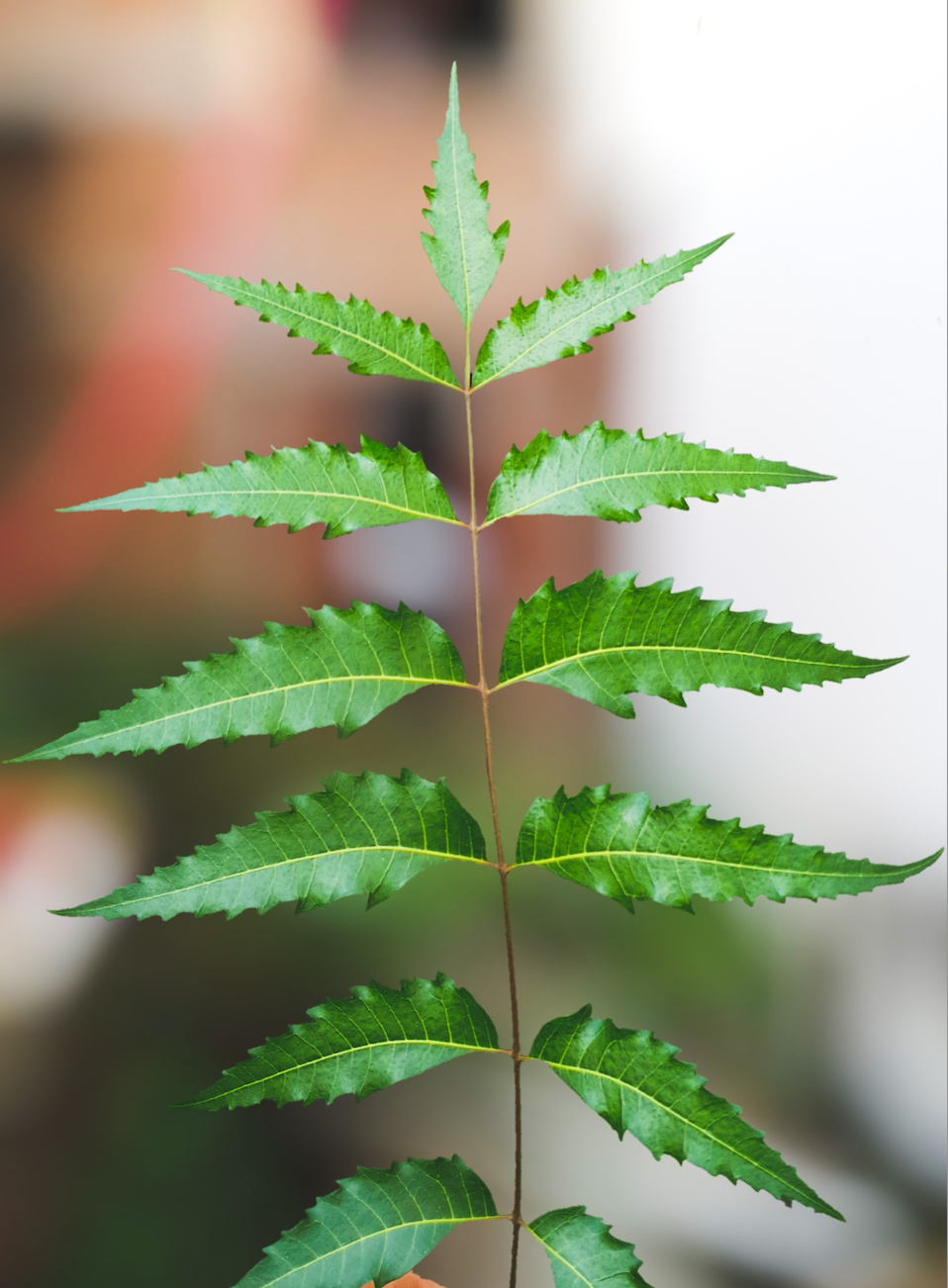
Neem Leaf — Traditional Herb for Microbiome Balance and Skin Health
- Neem has been used for centuries in Ayurvedic medicine for its health promoting benefits. In fact, its sanskrit name, Arishtha, means “reliever of sickness”.*
- Neem is traditionally used to support those suffering from SIBO and fungal overgrowth.*
- Antibacterial: Neem contains a variety of compounds, including flavonoids, tannins, triterpenoids and limonoids, which have been used traditionally for their antimicrobial properties against organisms such as E. coli, S. aureus, Pseudomonas aeruginosa, and Bacillus subtilis, including activity against drug resistant and and biofilm-forming organisms.*
- Antifungal & Antiparasitic: Neem can promote increased antifungal activity against both Candida albicans and Candida tropicalis, and antiparasitic activity against organisms such as Trypanosoma cruzi.*
- Dental benefits: Neem has traditionally been used in oral hygiene products to reduce gum inflammation and periodontal disease.*
- Dermatological benefits: Through astringent, anti-inflammatory, and gentle detoxification properties, neem leaf may also promote glowing skin, hair growth, and strong nails.*
Neem leaf is widely used in microbiome supplements for its antimicrobial/antifungal properties and traditional support of gut microbiome balance. Our microbiome pills help support digestion and skin through natural botanical synergy.
Ready to Support Your Gut Microbiome With Intention?
Add GI ALLY to your routine and experience the difference of a microbiome supplement designed with purpose. Support digestion, balance your gut, and feel more aligned from within.

FAQs About GI Ally
How is GI Ally different from other microbiome supplements?
GI ALLY combines traditional herbs and data-driven ingredients to support both the small and large intestinal microbiome. Unlike many microbiome pills, it targets microbial balance with transparency and intention.
How should GI Ally be taken?
As practitioners ourselves, we live by the philosophy of “start low, go slow”. This means, whenever incorporating a new supplement, it's often recommended to start with the lowest dose possible to ensure tolerance, and then ramp up from there to the dosing recommended by your practitioner.
This can be taken with or without food. However, we recommend for best tolerance to take with meals or 10-15 minutes before meals.
The suggested dosing for reset is: 1 to 2 capsules 3 times a day for 4 to 6 weeks or as recommended by your healthcare practitioner.
The suggested dosing for maintenance is: 1 capsule 1 to 2 times daily or as recommended by your healthcare practitioner.
Can GI Ally be used alongside other gut health supplements?
Yes. GI Ally can be taken on its own or as part of a broader gut health protocol. It complements other gut microbiome support supplements, including probiotics, prebiotics, or digestive enzymes, depending on your specific needs. Add restor.d for extra leaky gut support!
Is GI Ally vegan and free from common allergens?
Yes. GI Ally is made with a vegan capsule and contains no gluten, soy, dairy, or synthetic fillers. It’s designed to be a clean and inclusive microbiome product for a wide range of dietary needs.
What to expect and what is “die-off”?
Because GI Ally is focused on the root cause of bloating with SIBO/IMO, bacterial and archaeal overgrowth, relief is not expected to be instant. GI Ally is not your classic “anti-bloat” supplement that provides instant benefit but then wears off. Rather, it is a gut health microbiome support supplement that supports the root cause over a period of weeks, to provide lasting benefit. When first introducing GI Ally, some initial "die off" is to be expected.
"Die off" is a term colloquially dubbed by the integrative medicine community to explain a collection of symptoms (fatigue, brain fog, headaches, flu-like symptoms, or temporary aggravation of GI symptoms) that often occur when first introducing a new antimicrobial/ antifungal herb or medicine. The good news? This may be a sign that overgrown organisms are passing. The better news? It's temporary! Always consult your provider if new/ alarming symptoms occur.
What is SIBO?
SIBO stands for Small Intestinal Bacterial Overgrowth, a diagnosable and often treatable cause of gas, bloating (no, this is not normal to feel every time you eat), abdominal pain, fatigue, constipation and diarrhea - many of the same symptoms as IBS. There are three main types of SIBO: hydrogen, methane (now called intestinal methanogen overgrowth or IMO), and hydrogen sulfide. The good news? There's hope! Each type has unique targeted strategies that offer patient specific support.
What types of SIBO are supported with GI ALLY?
GI ALLY uses three trusted antimicrobial herbs - allicin (Allisure AC-23®), pomegranate hull and neem leaf - intentionally formulated to support the root cause of both hydrogen AND methane SIBO (Intestinal Methanogen Overgrowth). Knowing that we need hydrogen (H2) to make methane (CH4), our product is intentionally formulated to support both. GI ALLY is not intended for Hydrogen Sulfide SIBO.




